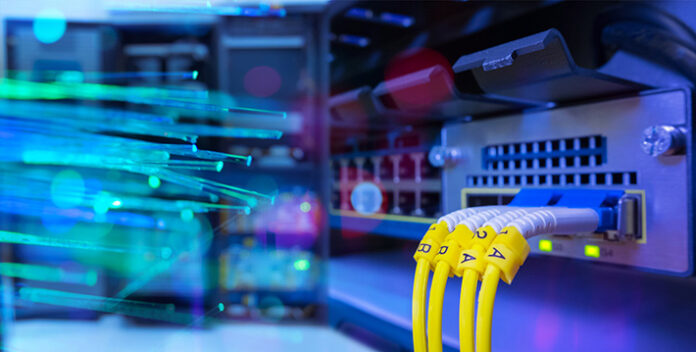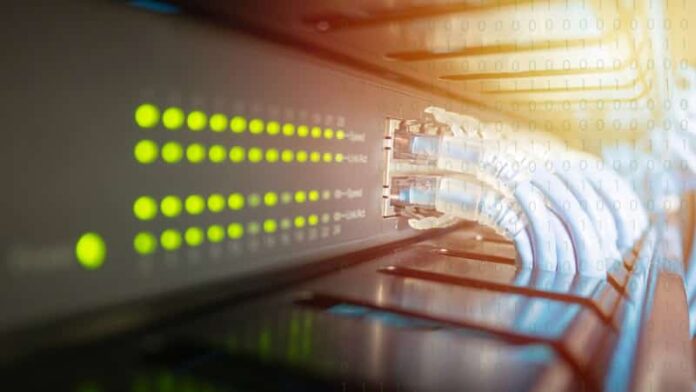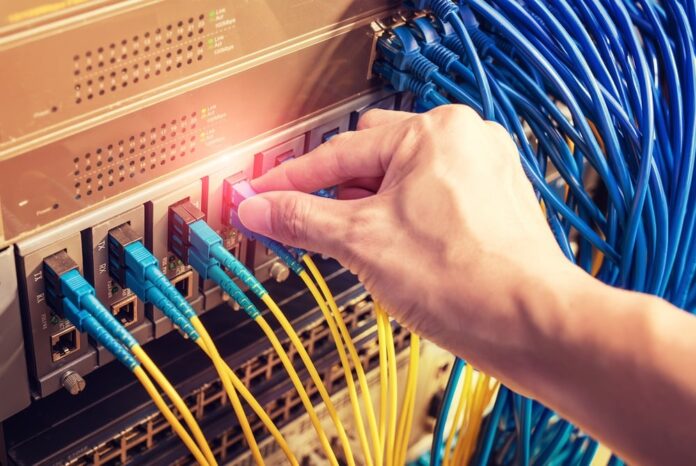Would you have guessed that the number of employees squander an effective work week a year due to poor computer performance and Internet connectivity? Before hitting the bulls’ eye, check here to discover the hidden hint of faster internet. Let’s briefly go through the rudiments of Gigabit Internet.
What is Gigabit Internet

Gigabit Internet is the most recent succeeding internet provider, with data rates up to 40 times speedier than a conventional household connection. You may download large movies in minutes, join virtual meetings in HD Quality, and update your smartphone’s operating system in milliseconds; then, it does so at a maximum pace of 1,000 megabits per second. Fiber optic cables, unlike typical copper wire lines, allow for the transport of large amounts of data at extremely high speeds, giving consumers quicker network speeds and more bandwidth.
How it works
Fiber-optic lines, which allow data to be transmitted at breakneck speed, can be used to bring gigabit internet service to your house. When it comes to gigabit internet, which offers concurrent download and upload speeds, typically, internet service providers emphasize faster download rates above uploading.
Advantages of gigabit internet

If you’re trying to persuade your boss to upgrade to Gigabit Internet, you’ll need to show them that the change might imply more than just faster Internet speeds. In other words, 1,000 Mbps of fiber Internet connectivity might help your entire company achieve its long-term objectives. There are monetary and non-monetary advantages to Gigabit Internet, including happier staff, a better corporate reputation, and more. We’ve listed a few examples below.
Improvements in video conferencing
According to a LyteSpark study, converting to video conferencing can save a typical company $33,000 per year in travel costs. The actual return on investment from improved video conferencing and greater video chat engagement isn’t only the money saved.
It can be classified into other categories, such as service performance. Imagine the harm to your company’s reputation if your Internet bandwidth stops due to network congestion while you’re in the middle of a crucial video call. Moving to Gigabit Internet can help you avoid the problems with reduced, slower Connection.
Streams of digital income
Gigabit Internet can inspire digital transformation, including new revenue streams for your company. Digitally earned money can have superior financial features to traditional revenue sources, according to Gartner experts. In today’s fast-paced business environment, developing a wide range of products and services may be the best way to ensure your company’s long-term success.
According to Hung LeHong, vice president and fellow at Gartner, enterprises can employ a super-fast Internet connection to establish digitally-based revenue streams in a variety of ways:
Existing digital assets may be sold: Modern digital assets can be provided and monetized easily via digital distribution.
Digitize Current Products: Existing products or services, such as digital-based consultancy, may be eligible for digital distribution in some situations.
Sell Metered Revenue: Digital delivery, such as Teledoctors and eMedicine, can provide a pay-as-you-go model for service delivery.
Manage a Framework Business: SaaS, on-demand apps, and other platforms.
Adjacent or New Sectors: At-risk industries can look toward developing completely new business methods and products.
Cloud Computing at a High Speed

Platforms and services for cloud computing have become important corporate tools worldwide. When viewing or uploading data to these sites, slow network connections might cause delays, disruptive and annoying. This is especially true for companies that operate with a worldwide staff or interact with potential clients in real-time.
Multiple User Capability
Many users share a single link in many houses. Slow internet speeds are typical among those who still use a standard broadband network.
This will not affect Gigabit internet users. This cutting-edge network connection accommodates numerous users and offers extra bandwidth for all your tasks and requirements.
Improved Service Reliability
Unlike typical cable internet, which uses copper lines, gigabit internet uses fiber optic cables constructed of glass. Copper wires are less robust, with a maximum pressure capacity of only 25 pounds. Fiber optic cables, on the other hand, can withstand up to eight times the force (100 to 200 pounds).
Copper wires also suffer from signal loss as they travel further away from the source. Fiber optic cables do not suffer from signal degradation, and they may even protect your connection from external interferences such as extreme weather, fire, moisture, and electronic impulses.
Employee Engagement and Morale
Morale and engagement among employees are major strengths. While employee engagement results from the overall employee experience, the environment and technology can greatly impact how well people can execute their tasks. Employees’ performance can be hampered by poor technology and slow Internet access.
Employees that are frustrated and stressed may bring a low-morale environment. Personal communications and coordination can be improved by upgrading to Gigabit Internet.
When these factors are paired with other aspects of a work environment that support good employee engagement, such as effective employee biometrics and a positive corporate culture, your company may benefit from happier employees and higher talent management.
What Is the Price of Gigabit Internet?
Two variables influence gigabit Internet service. These charges incorporate the initial installation price and the cost of your fiber Internet package’s monthly benefit. Both are subject to change based on the specifics of your facility and your service provider.
Gigabit Internet Over Fiber Installation Costs
Setting up Gigabit Internet varies widely, but it influences the availability of fiber Internet in your building or neighborhood. If your facility already has fiber-optic Internet, upgrading to Gigabit Internet could be quick and inexpensive.
If your institutions do not have fiber Internet access, the charges vary greatly depending on multiple criteria. These may include, but are not limited to:
- Distance to Nearest Fiber Resources
- Requirements for city permits
- Building Construction Requirements
- Dimensions of the Structure
Finally, the only way to establish how much fiber will cost your company is to have an on-site examination with a local supplier who can walk you through data types, your closeness to fiber resources, and examine your facility’s features.
Conclusion

Following the installation charges, your company pays a purchase charge for Gigabit Internet access. The cost of this service varies greatly based on where you live, which carriers supply fiber service in your area, and the conditions of your contract.
Whenever you sign up for Gigabit Internet service, double-check that the terms and conditions in your service contract ensure each of the following features for dedicated Gigabit Internet service: bandwidth, speed, pricing, support and Services, reliability, and guarantees.









